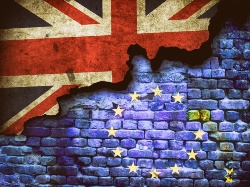Following the introduction of the new rules of origin on 1 January 2022, Andrew Thurston, Customs Duty Consultant at MHA, warns that businesses risk financial penalties and damaging customer relationships unless they are fully compliant with the updated rules.
“With the grace period now over, UK businesses that export into the EU can no longer afford to be complacent regarding rules of origin. Under the UK-EU Trade and Cooperation Agreement (TCA) exporters will now need to provide clear and sufficient evidence to prove the true origin of their goods if they want to continue to qualify for tariff-free trade, or risk paying duties.
 “While the terms of the TCA provided a valuable grace period throughout 2021 for businesses to prepare for the impending changes, many UK manufacturers dangerously assumed that if they purchased or manufactured their products in the UK this automatically meant those products were of UK origin.
“While the terms of the TCA provided a valuable grace period throughout 2021 for businesses to prepare for the impending changes, many UK manufacturers dangerously assumed that if they purchased or manufactured their products in the UK this automatically meant those products were of UK origin.
“However with today’s complex supply chains, many products do not meet the required threshold of 50% British or EU-sourced content to fully qualify for zero tariffs under the TCA. As a result many businesses now risk being caught ill-prepared to meet the minimum origin requirements when facing HMRC audits or mutual verification requests in 2022.
“This presents serious ramification for business. Those unable to provide the relevant proof of origin risk providing an incorrect declaration, making them liable to potential penalty actions. Most alarmingly,those exporters that don’t qualify for the tariff-free trade face the daunting prospect of informing theirEU customers, forcing them to amend all their import declarations and pay the necessary duty. Not only could this severely damage a UK business’s relationship with its EU partners, it could be the difference between its goods being sellable within the EU or not.
 “As UK business have navigated through an extremely challenging year in 2021, with pressures from Covid-19, Brexit, inflation and supply chain issues, the full imposition of rules of origin regulation presents yet another potential headache they must overcome.
“As UK business have navigated through an extremely challenging year in 2021, with pressures from Covid-19, Brexit, inflation and supply chain issues, the full imposition of rules of origin regulation presents yet another potential headache they must overcome.
“For those that already ship their good under zero-tariff in the EU, it will be business as usual. Businesses that have yet to review the new requirements need to do so urgently to ascertain if their goods qualify for tariff-free trade and ensure they have the required evidence to meet the new rules.”















